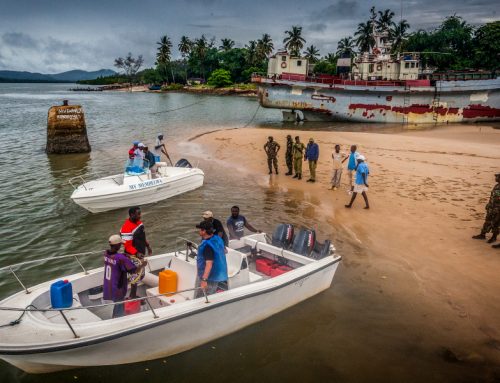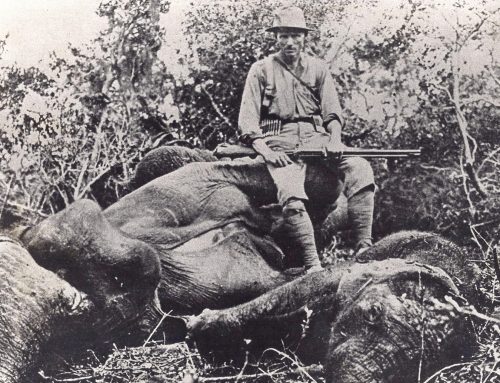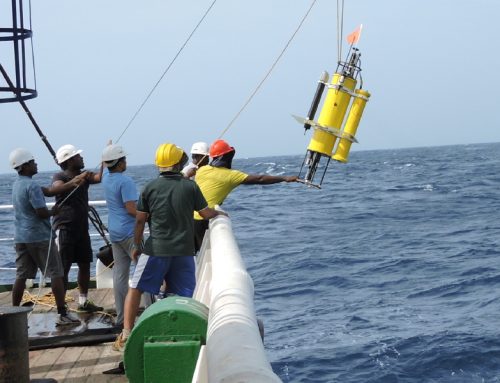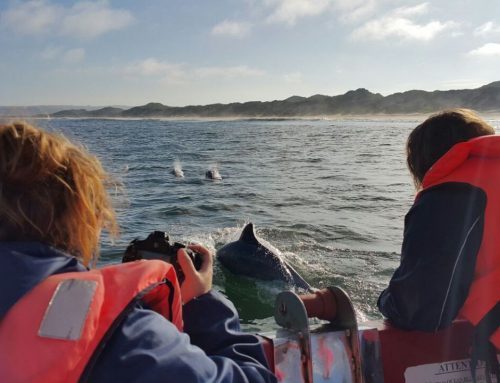 When the school feeding scheme in the Eastern Cape collapsed earlier this year, Eco-Schools in the Port St Johns area managed to continue feeding their learners thanks to their food gardens.
When the school feeding scheme in the Eastern Cape collapsed earlier this year, Eco-Schools in the Port St Johns area managed to continue feeding their learners thanks to their food gardens.
Bearing in mind that these schools have up to 50 learners per classroom, it is a superb example of how sustainability in its various forms keeps people alive and provides for their most fundamental needs.
“The learners grow sweet potatoes, spinach, cabbages, tomatoes, green peppers and medicinal herbs in their food gardens. The herbs are used to treat common ailments like rashes or colds,” explains the Wessa-based Eco-Schools Provincial Programme Manager for the Eastern Cape, Catherine Andersson, who is also the coordinator for the Port St Johns Eco-Schools cluster.
The food gardens are all grown using permaculture techniques, including mulching, intercropping and plants such as wild garlic, marigolds and nasturtiums as pest deterrents.
Eco-Schools is a national environmental education programme, managed by Wessa or the Wildlife and Environment Society of South Africa, which assists teachers to apply environmental education in the school curriculum. It also teaches learners the value of the natural environment through a variety of water, environment and energy conservation projects.
“It’s very important to apply environmental education to real life to make it real,” says Andersson. “For example, each of the five Eco-Schools participated in a ‘Hotbox Cook Off’ where they made their own hot box for cooking food.”
A hotbox is made up of two pillows filled with an insulating material such as polystyrene, she explains. After heating up a pot and its contents over a stove or fire, it can be transferred to the hotbox where the food continues to cook by means of the heat trapped by the pillows.
“The learners cooked a meal using the hotbox as part of a lesson and calculated how many units of energy they saved by using the hotbox compared to if they had cooked it entirely on an electrical stove or using firewood. This way, environmental education is brought out in all learning areas including mathematics, science and life orientation.”
Over the years The Green Trust has funded various Eco-Schools countrywide as well as the salaries of provincial coordinators. The Port St Johns Eco-Schools cluster links in with another project the Green Trust sponsored for many years, called Master Farmers. An organic farming programme it has since been renamed the Wild Coast Farm & Forest Organisation.
In addition to assisting the 100-plus farmers in the Port St Johns area to farm organically, this programme also assists in the conservation of the rare and endangered indigenous coastal forests in the region. Managed by Mbulelo Maqhanqa, the programme has its own self-sustaining nursery called Umzimvubu Nursery where plant, tree and vegetable seeds and seedlings are offered at extremely low prices to encourage participation.
“As one of their projects, Eco-Schools from the Port St Johns cluster were taught about the different indigenous trees in their region and how these assist in absorbing carbon as part of climate change education. Guided by Mbulelo Maqhanqa they then harvested seeds from indigenous trees and planted them in their school grounds,” continues Andersson.
The local ‘stick man’, elder Tata Cwaba who makes walking sticks and wooden spoons from wood collected from the forests, also spoke to the learners about sustainable harvesting. This is particularly important for the Port St John communities, as most do not have electricity, and they rely on wood for cooking and heat.
To understand the medicinal use of plants, learners were given a lesson by a local medicine man named Shalom Masa who, along with Tata Cwaba, is part of the Forest Users Association in Port St Johns. All the members participate in sustainable harvesting. One of the many threats to the indigenous forests is illegal harvesting without any concern for sustainability by outsiders who ransack the forests for markets in Durban and Cape Town.
“Forest sustainability, water sustainability, the learners and adults all need to understand this is about survival,” says Maqhanqa who has helped 56 farmers to install JoJo rainwater tanks at their homesteads. The water tanks, provided by the Department of Water Affairs, are the lifeblood of these farmers who depend on the vegetables they grow for survival and who do not have access to any other form of water other than rainwater.
Maqhanqa is married to Mfani Maqhanqa who is one of the leading environmental educators in the Port St Eco-Schools cluster. “She has been driving the Eco-School programme at Langalitshoni Primary for eight years. Another teacher who has been in the Eco-Schools Programme for eight years is Nokuzola Ndamase from Roman Catholic Junior Secondary School. “Their teaching and environmental knowledge is really good, as is their ability to link this to activities outside the classroom. Fortunately we have a couple of wonderful teachers in our Port St Johns cluster, ”says Andersson.
This year Langalitshoni received their second Platinum Eco-Schools Award and they were also selected for the Sustainable Commons Programme, funded by USAid, which is about bringing sustainable technologies to local communities that they can implement.
Mfani put herself through an advanced certificate in environmental education in Grahamstown. This meant paying for transport and accommodation out of her pocket. “Dedicated teachers and principals make a significant difference, not only to environmental education but to the general running of their schools. We see schools who are receiving the same finances, where one is building another wing of classrooms whereas another doesn’t even have desks.”
The Eco-Schools programme in Port St Johns, as with the rest of the Eastern Cape, works with many different Environmental Education partners and stakeholders. For example, Wessa has been working with the Wild Coast Project, a programme of the Eastern Cape Parks & Tourism Agency (ECPTA) on an Environmental Awareness and Teacher Training Programme involving 53 schools along the Wild Coast. The aim of this programme is to support environmental education in the participating schools and to help them take advantage of the learning opportunities in the neighboring ECPTA Nature Reserves and protected areas.
The Eco-Schools in Port St Johns also partner with non-Eco-Schools for clean-ups and waste management projects, which are part of the Eco-Schools programme. Waste management in schools is a serious issue, especially when are not serviced by the municipality. As a result they need to become creative. “They make beautiful crafts from waste, such as hula necklaces from sweet packets, flowers from cooldrink cans, and hats, mats and bags from plastic packets,” adds Andersson.
An important element of the Eco-Schools programme is water conservation.
“As with the farmers, rainwater harvesting in tanks is critical for most rural schools due to lack of access to tapped water,” Andersson explains. “They need to be able to harvest, store and conserve enough water to keep their food gardens going through the dry periods. Learners are taught not to waste water and to use cups when they drink from taps. As part of their mathematics lesson they work out how much water you waste when you drink with your hands versus a cup.”
Turning people onto conservation in deep rural areas is no easy task. Most communities in the Port St Johns areas do not have access to tap water. When learners return home from school, which is often a walk of several kilometres, they have to fetch water from the river, collect firewood and help cook. Those who live along the coast also harvest seafood, such as mussels, to sustain their families. Unemployment is rife and most families depend on the government grants.
Food grown in the food gardens provides invaluable nutrition for learners, and the surplus is often given to the orphaned and vulnerable learners at the school. Which makes it all the more admirable what the Eco-Schools programme is achieving in Port St Johns and throughout South Africa.




